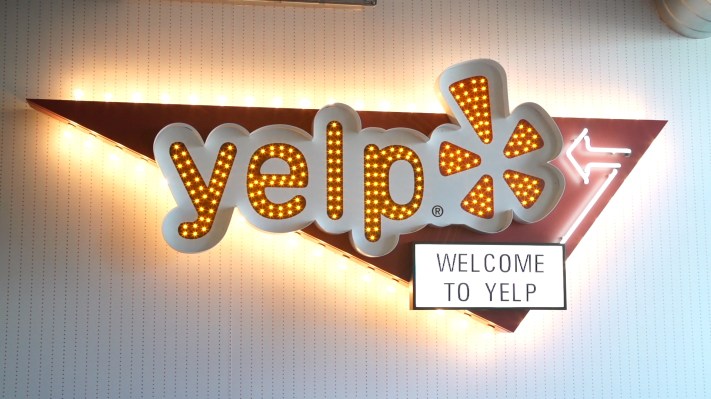Yesterday, when local ratings and reviews site Yelp posted strong quarterly earnings with a surprise profit of $2.1 million, it also slipped in the news that it plans to lay off 175 people, or four percent of its workforce, mainly in its international operations in sales and marketing roles, after failing to grow its business outside of North America. We now have more details about what is going on.
While Yelp began to give notice to sales and marketing staff outside of the U.S. and Canada today, sources close to the company tell us it is now in consultation to shut down one international office, in Dublin (consultation is the formal process you go through to close up shop).
Elsewhere in Europe, we have been able to confirm with a Yelp spokesperson that it will continue to run its offices in London and Hamburg, but only for engineering and other non-commercial operations. The company will continue to run its local sites and apps, where consumers can post and find reviews of local businesses, but Yelp will no longer sell against those listings. (It will, however, honor its existing sales contracts.)
“We will continue to host and support the Yelp website domains and apps in all existing countries (32), so Yelp will continue to be available in Europe, for instance,” said a spokesperson. “We will also maintain our engineering teams in Europe, including our engineering offices in London and Hamburg.”
Yelp declined to comment on what is happening elsewhere, but from what we understand from our sources, the company does not have any other international offices, just employees in other markets, and most of these will be going as part of the 175 layoffs, too.
Yelp said in its earnings yesterday that it will take a restructuring charge of between $2 million and $4 million in Q4, with the majority related to severance for affected employees.
The news is a definite step back for Yelp, which in the past few years made a number of acquisitions to build out its international business when it hit this market with high ambitions. They have included Qype for $50 million, Restaurant Kritik in Germany and Cityvox in France to pick up audience, inventory, technology and talent to run its operations. It’s also inked deals with the likes of Twitter to power location tags outside of the U.S. (where Yelp’s big rival Foursquare provides location tagging for Twitter).
You have to wonder how much longer and tenable Yelp’s international business might be longer term, without much of a commercial underpinning behind it.
Yelp has not been the only U.S. company focused on local commerce that has found international growth hard-going: both Groupon and LivingSocial (which Groupon is acquiring) also made a number of moves to downsize their businesses outside of their home markets.
For Yelp, there is another interesting angle to these developments. The company has been a strong voice in the case against Google and alleged antitrust violations in Europe — a case that just today had a new development, when Google formally rejected the antitrust charges. Yelp’s argument has largely been that companies like it cannot compete against Google when it comes to search, and, well, now you might argue that this is essentially what we are seeing getting played out. We’ve been told that Yelp will continue to fight the Google fight despite its diminished position.
